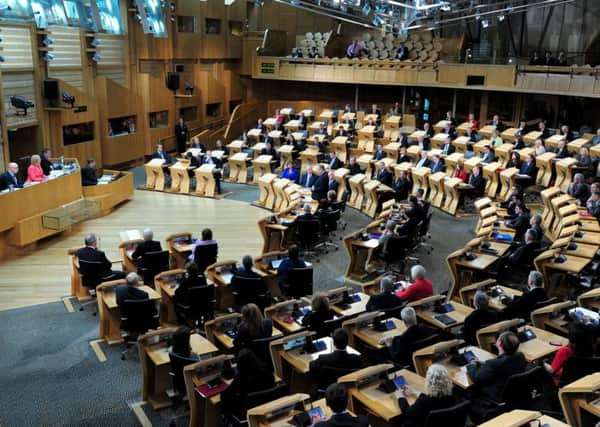Is a supposed benefit of Scottish Parliament one of its biggest problems? – Paris Gourtsoyannis


Twenty years ago on Monday, the Queen formally opened the first session of the reconvened Scottish Parliament on the Mound, giving it the power to legislate and ushering in a new constitutional era.
She told the nation’s new parliamentarians that “the test for Scotland and for this new Parliament will be to harness [its] great strengths, to channel them through the energy of the young and the experience of the old, to shape the future”.
Advertisement
Hide AdAdvertisement
Hide AdThat was the job, and Holyrood did it. Land reform, national parks, the smoking ban, free personal care, equal marriage, minimum alcohol pricing – the past two decades have seen society-changing policies reach deep into the lives of ordinary citizens.
So it’s right that devolution and the Scottish Parliament are being celebrated throughout the anniversary year. But it’s fair to point out, too, that many of the biggest leaps were in the early years of a devolved and better nation; and as well as celebrating devolution, it’s important to put the question: is it still working?
Certainly, the Scottish Parliament feels indispensable now, to the extent that even the asking feels risky. This conclusion feels riskier still: that the deeper the Brexit crisis gets, the more it becomes clear that large parts of devolution were built on unstable foundations.
And as the passage of time offers the benefit of hindsight, the greater the sense that the political culture at Holyrood has more maturing to do if it is to continue shaping the future with the same impact.
The layouts of Holyrood and Westminster are often used as a metaphor for two different approaches. The horseshoe-shaped Scottish Parliament is less adversarial than Westminster – where opponents face each other two sword lengths apart – with critics claiming it produces less dramatic debate.
But the more consensual approach that Scotland’s system of proportional representation has forced on (most of) its devolved governments should be prized, particularly now, when it’s obvious that Westminster is unable to escape party entrenchments to solve a crisis.
Nonetheless, some who have worked on Holyrood legislation complain that the political ‘village’ of third sector and interest groups – smaller and arguably more homogenous in Edinburgh than the one in London – means that radical ideas can be flattened out of political debate.
At Westminster, there’s no lack of ideas being floated from across the political spectrum, some good, many bad, most that never get anywhere. Do MSPs feel as free to be radical, and upset the consensus?
Advertisement
Hide AdAdvertisement
Hide AdDissent and scrutiny can also be stifled, meaning the right questions aren’t asked. Two of the biggest long-term challenges for the Government – the fallout from the creation of a single national police force, and the delivery of Curriculum for Excellence – began their life as reforms with broad, cross-party support.
Given Scotland’s political history, it’s easy to imagine this only affects the left, but it’s the Scottish Tories who pay the biggest cost of being bound by it. They have a supposedly mould-breaking leader in Ruth Davidson and the benefit of being the official opposition. Where are the ideas that will carry them into the 2021 Scottish election? A policy review is underway, but it has yet to suggest a programme that will let Davidson take a further step towards power.